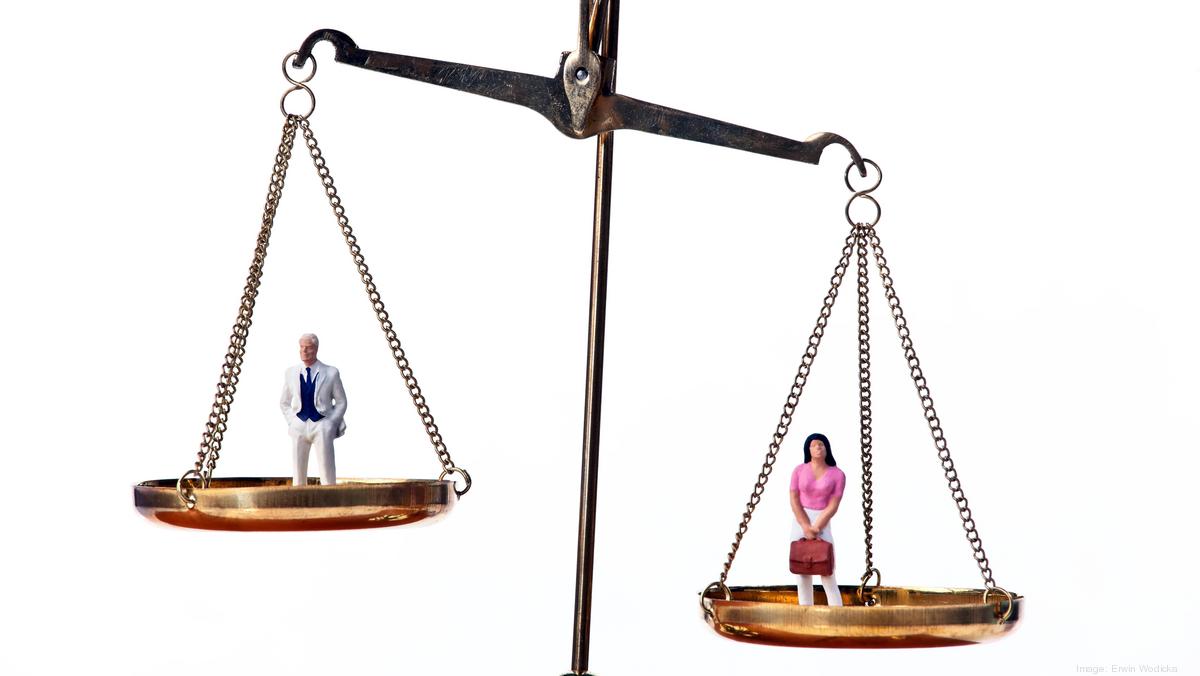For some time now we’ve been pushing the envelope for some good, old fashioned modern-day equality when it comes to salary.
And by some time, we mean since the beginning of time – or since the first cavewoman decided that she’d quite like to have a break from cooking dinner and being clubbed over the head so she could just relax and have some ‘me’ time, thank you very much.
There have always been counter-arguments for not level;ing out the playing field once and for all. From point blank denial of the pay gap’s existence to the excuses that women simply don’t work in the same industries as men, we’ve heard it all before.
[ad_bb1]
And of course there is always the school of thought that women simply can’t have it all (i.e. family and a career), all the way through to the ridiculous ‘men pay more for everything’ justification.
Even when we can agree that there is a disparity between men and women, we’re constantly being told that the problems are too deeply rooted to be solved with any sort of urgency.
A TIME article reported on how the inequalities faced by females have absolutely nothing to do with the amount of hours worked, job seniority, or the individual choices made by each gender. Instead, a Harvard economist demonstrated that it had everything to do with gender discrimination.
Of course it’s better than it used to be – but so are LGBT and race laws. Does that mean it’s time to stop campaigning for not just improvements, but actual equality?
Well, one institution certainly doesn’t seem to think so, because the actions of a UK university have proved just how simple it is to solve the age-old gender issue. To close the gap without further ado, the University of Essex has pledged to give its female professors a raise.

University of Essex
This one-off boost to their salaries aims to combat the inherent sexism in the industry, where female professors are frequently underpaid compared to their male counterparts.
The effort looks to even out the gender pay gap by October 2016.
No muss, no fuss. Women aren’t being paid as much, so let’s just pay them fairly. Sounds simple, right? So why aren’t other companies doing the same?
The call for gender pay equality does not ask for special privileges for women, or a salary increase for a job we’re not doing. We’re not even necessarily asking for positive discrimination or employment equity – just the same pay as the guy who sits next to us, performs the same duties as us. and has the same job description on LinkedIn.
Surely that’s an easy win.
That’s not to say that underlying issues don’t exist and in some cases slipping a lump sum is not going to cut it – there are plenty of industries that sorely lack females. It’s easy to argue that it’s not a pay gap if women don’t gravitate towards higher paying fields of work or if traditionally female-dominated jobs tend to be compensated less.
But it’s important to ask ourselves where these decisions come from in their infancy. Young girls are not born assuming that a life in tech or finance is not on the cards for them – someone is putting this message into their heads, subconsciously or otherwise.
Every time we tell our nieces what a pretty dress she’s wearing, then ask our friend’s son what he’d like to be when he grows up, we’re perpetuating the myth that women can’t be high achievers like their brothers or fathers.

When we do have the opportunity to quickly and easily solve the pay gap, where we can level the disparities between the wages of a male and female performing essentially the same role, let’s take it and make an example to other employers.
“Treating our staff with equal respect and dignity is at the very core of our values as a diverse and inclusive community,” said University of Essex professor Anthony Forster in an interview with Mashable.
“This decision ensures we reward people in a fair way, based upon their contribution to our community, regardless of their personal characteristics.”
Is there plenty of work to do to achieve equality? Definitely, but the University of Essex has taught introduced a replicable blueprint.
There’s no need to overcomplicate a simple math problem. The average female salary + a pay increase = equal salary for both sexes.
That’s what we call a no brainer.
[ad_bb2]

